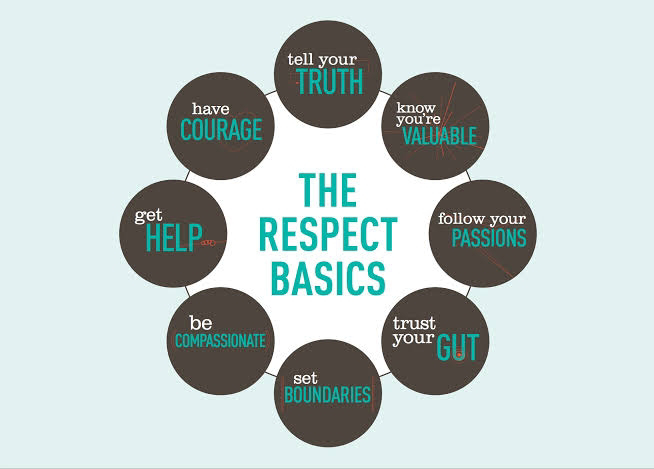DANGER OF KEEPING SECRET IN A RELATIONSHIP
 |
Everyone
keeps secrets. They sit with us, like stones in our pockets. Some weigh us
down. Others just exist. All are present. People who keep many secrets experience
a significant amount of stress that has been scientifically proven to impact
long-term health. They become prone to depression, anxiety, and body aches. Secrets are
okay to an extent, but keeping way too many may result in health problems. Keeping secrets can
affect your behavior, cause your body to be under stress, and maybe even ruin
relationships
For years, you felt burdened with thoughts, feelings and opinions that didn’t seem to make much sense to anyone else. You sometimes wondered if you were going mad. There were people you didn’t like, but everyone else seemed to think they were terrific and so you held your tongue. You got anxious and uncomfortable on social occasions when everyone else seemed happy and relaxed. There were things you would have quite liked to try in bed, but they felt shameful and you would not have dared to mention them even to your best friend.
One of the great
concerns in many romantic relationships involves
secrecy vs privacy. One partner thinks that he or she deserves a bit of
privacy; the other views this desire as secrecy. Which is which?
How can we know the difference between the two? And how should we navigate
between these two extremes?
- Privacy: is
best defined as the state or condition of being free from observation and
disturbance by other people. For instance, when you leave a public event
and return to the privacy of your own home, the person who sat next to you
at the public event can no longer stare at, talk to, or otherwise annoy
you. In general, keeping certain things private involves setting and
maintaining boundaries that align with your individual needs, values, and
beliefs. When your privacy is violated you might feel angry, and
rightfully so, with a desire to pull away from whoever spoiled your
privacy.

- Secrecy: is
the active state of intentionally keeping information hidden from one or
more people. In general, beyond professional requirements for
confidentiality, if you keep something secret it’s because you fear the impact (on yourself or others) that
the information might have if it were openly known. What often
underlies secrecy is a fear of judgment and/or reprisal. When your secrecy
is violated, you may feel as if you’ve lost control over the information
and how others respond to it. Thus, you might feel afraid, anxious, concerned, and angry,
and want to pull away.
What
I’ve come to realize is that being vulnerable and honest about all aspects of
your life is an act of courage. Some people believe they need to keep secrets
or lie to survive in a relationship. They lack confidence in their ability to
confront unpleasant topics, such as money troubles, or issues related to past
or present errors in judgment or mistakes. However, finding healthy ways to
honestly express yourself to your partner is the best way to build a trusting relationship that endures the
test of time.
But is lying by
omission or keeping a secret the same as betrayal? In my opinion, you want to
consider how your partner would view your secret if they found out and you
neglected to tell them about it. Also, if you feel guilty or uneasy about not
disclosing information to them, it’s a red flag that you need to do so.
For instance, Mary
never told her husband Jacob that she had dinner alone with Mc’Mende, a male
co-worker, while away at a conference. She explains: “I don’t really see
a reason to tell Jacob because it was just dinner, but I do feel that Mc’Mende
may have had ulterior motives because he asked me out after we returned home. I
just don’t want Jacob to judge me harshly because he is very jealous and
possessive.”
When I attempted to explore with Mary the
reasons why honesty is essential to a trusting relationship, she said: “I guess
I never saw myself as being dishonest, but I do feel guilty.” At this point, I
asked her to consider that mistrust erodes the quality of any relationship and
that keeping crucial information secret from Jacob isn’t a way to build trust
with him.
Like Mary, many of my clients tell me
they’re keeping secrets from their partner because they believe telling the
truth will make things worse. Or they’ve convinced themselves that their
significant other simply can’t handle the truth and might abandon them. While
it is true that some partners will feel angry, hurt and betrayed when they
learn their love interest has done something unacceptable to them, honestly
confronting issues is the best way to foster trust and intimacy with a partner.

Certainly, keeping secrets from a partner
is a common dilemma that needs to be addressed on many levels. In fact, recent research shows that one in five people are keeping a
major secret, such as infidelity or money troubles, from their spouse. Surprisingly, a quarter of
respondents in this study said they kept this secret for more than 25 years.
Further, one in four of those people who kept a secret in this study said that
it was so big, they worried that it would destroy their marriage. Common
secrets reported include money troubles, viewing pornography and various forms
of betrayal such as infidelity.
When your partner withholds important
information from you regardless of their reasons, it’s normal to feel betrayed.
Trust is a huge issue. It takes a lot to rebuild trust and if it’s broken,
there’s a chance it may not be earned back. How much will you put up with
before ending a Relationship when you feel betrayed? relationships are
made up of many components and people will put up with many quirks to keep a
relationship going. If you are consistently made to feel uncomfortable or
uneasy because you feel as if you cannot trust your partner, then making the
decision not to take him or her back is the logical one for you. Life needs
quality and a sense of security. In other words, by keeping secrets or lying to
your partner, you run the risk of losing their trust and putting your
relationship in jeopardy.
Reasons Why Keeping Secrets Can Destroy a Relationship
1. Keeping secrets is
being dishonest. Honesty is always the best policy, and most of us have a moral
code that tells us that keeping secrets is akin to lying. For most of us, being
dishonest is only acceptable when we are in dire straits – like trying to save
someone’s life or survive a disaster.
2. Keeping major secrets
is a form of deceit. The more time that passes, the harder it is to tell the
truth.
3. Being deceitful
breeds mistrust. Further, once a person loses trust, it is hard to regain –
especially for those who have been betrayed by a parent, former romantic partner,
or spouse.
4. Keeping secrets is a
hotbed for betrayal. Leaving out important facts can lead to further deception or
betrayal. Whereas being open with your partner will promote trust and honest
communication.
5. Relationships are
damaged by lies and couples grow apart. It’s hard to feel emotionally
connected to someone when you catch them in a lie or find out that they’ve kept
a secret from you.
Trust is about so much more than catching your partner in a truth or lie. It is about believing that he or she truly has your best interests at heart. Mistrust is a lingering feeling in the back of your mind that your partner does not truly love you or may abandon you. So much about trust is walking the talk. Your partner may tell you he/she loves you, but do his/her actions support that? All too often, when people aren’t feeling safe enough in a relationship to be honest and open with their partner, it’s because they don’t believe that their partner truly loves them or they are overly protective of their own interests.












Comments
Post a Comment
Thank you so much I appreciate your feedback.